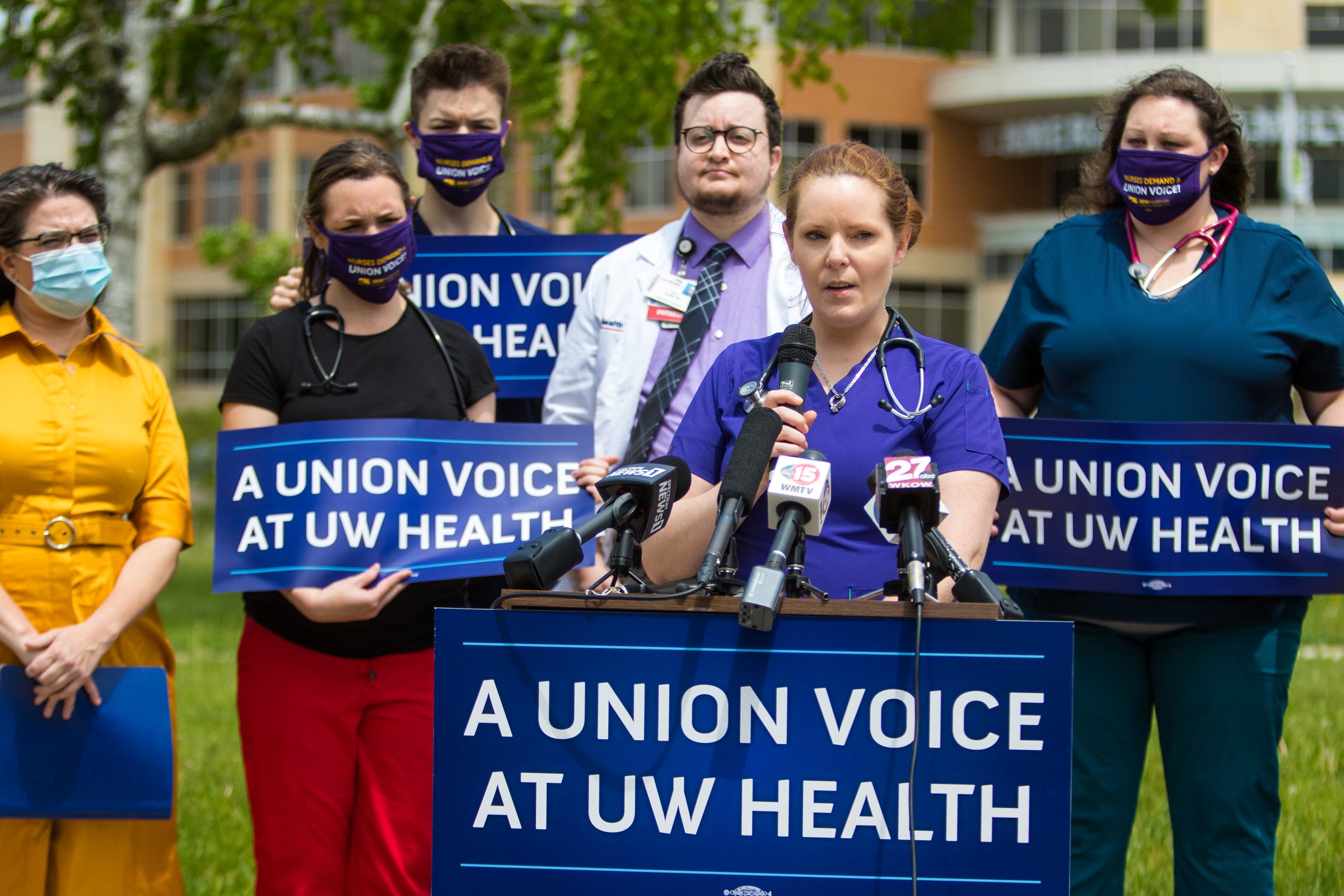The Wisconsin Supreme Court has ruled local health departments do not have the authority to close schools due to emergencies like the coronavirus pandemic.
The conservative majority of the court, in a 4-3 decision Friday, also ruled a school closure order issued last year by Public Health Madison & Dane County infringed on religious rights.
The ruling is yet another victory for conservatives who challenged both state and local orders issued during the pandemic to close schools, limit capacity in buildings and require masks to be worn. It follows a temporary injunction issued last fall that allowed schools to open over the health department’s order.
News with a little more humanity
WPR’s “Wisconsin Today” newsletter keeps you connected to the state you love without feeling overwhelmed. No paywall. No agenda. No corporate filter.
The Wisconsin Institute for Law and Liberty, which was one of the groups that challenged the order, issued a statement praising the Friday decision. Lucas Vebber, deputy counsel at WILL, told WPR that the ruling was a welcome, though expected, victory.
“It was a significant win, and we’re certainly happy to see it today and appreciate getting the opinion, and the court’s rationale, we thought, was very strong,” he said. “The order that they issued here was illegal, it was unconstitutional, and the court confirmed that today with their ruling.”
Janel Heinrich, director of Public Health Madison & Dane County, issued a statement saying she was “disappointed” in the court’s ruling.
“This decision hinders the ability of local health officers in Wisconsin to prevent and contain public health threats for decades to come,” she said. “This ruling impedes our ability to respond to any disease that might impact students, teachers and school staff, and impacts family and friends beyond the walls of the school. Unnecessary, preventable illness may certainly occur as a result of this ruling.”
Though the ruling restricts health departments from closing schools, it still allows individual schools to make closure decisions as needed.
“Local health officials still have a number of powers under state law that weren’t challenged in this litigation,” said Lucas Vebber, deputy counsel at WILL. “What was challenged in this litigation was an unlawful order of the local health officer that issued a blanket school closure order for all schools in Dane County — that’s just a power that they simply don’t have under the statute.”
WILL was joined by the Wisconsin Council of Religious and Independent Schools, School Choice Wisconsin Action and several Christian schools and individuals in challenging the order.
Erick Kardaal, an attorney for the private St. Ambrose School that had challenged the order, issued a statement celebrating the ruling through the Thomas More Society.
“This has been an overreach of major proportions by a local health official who ignored the fundamental constitutional right to the free exercise of religion for parents, students, and school personnel by ordering these institutions to shut down and prohibiting in-person education,” Kardaal said. “It was a slap in the face to educational choice, an affront to families who believe that children should be in school, and a direct violation of parental rights.”
Conservative Justice Rebecca Bradley wrote the majority opinion and was joined by her conservative colleagues Chief Justice Annette Ziegler and Justice Patience Roggensack. Justice Brian Hagedorn wrote a concurring opinion. Liberal justices Jill Karofsky, Ann Walsh Bradley and Rebecca Dallet dissented.
Wisconsin Public Radio, © Copyright 2026, Board of Regents of the University of Wisconsin System and Wisconsin Educational Communications Board.




